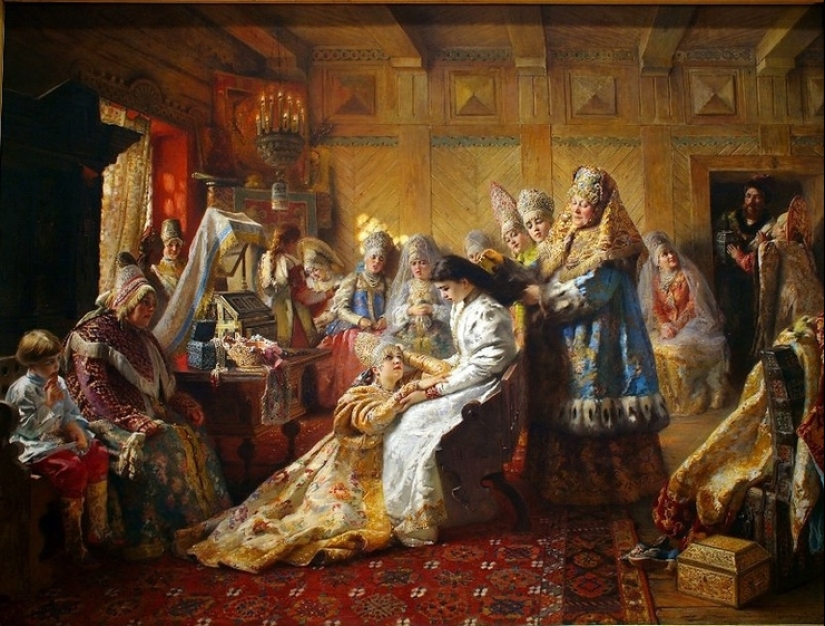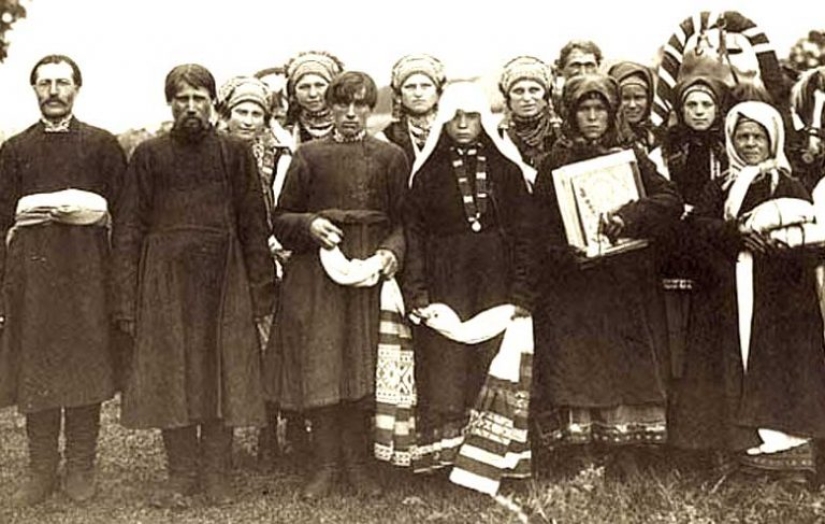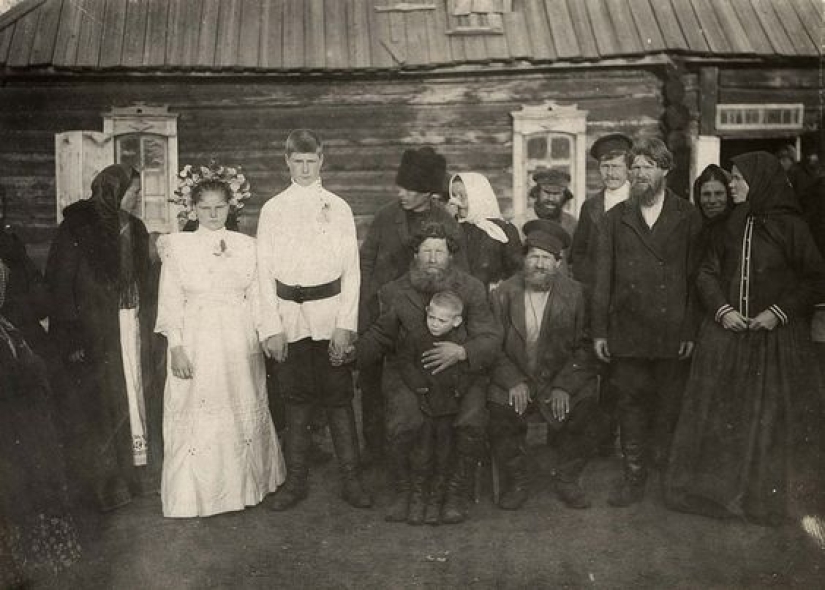Features of national marriage: a few facts about wedding customs in Russia
Wedding traditions in Russia have always been distinguished by originality. The bizarre interweaving of pagan rituals and Christian customs in Russian villages has allowed many interesting phenomena to appear, which most modern people have never heard of.

We are used to the dominant role of men in marriage and we are sure that it has always been so. The groom sent matchmakers or himself came to the bride's parents to woo, taking friends and gifts with him. In this case, after the wedding, the young wife went to her husband's house. As they say: "Your product is our merchant."

But 100 years ago everything was much more democratic. If the groom was not rich, but the marriage had to take place, everything could happen exactly the opposite. Matchmakers were sent by the bride's parents, and the guy, if the issue was resolved positively, went to his wife's house with a dowry. In this case, the husband was called somewhat disparagingly — "primak" and in the spouse's house he was somewhat restricted in rights.
In ancient times, marriage was treated seriously in Russia, and the bride and groom were treated with respect. Before the adoption of Christianity, for most Slavic peoples, the mutual desire of a guy and a girl to tie the knot was the main reason for a wedding. Nevertheless, this circumstance did not prevent the existence of such an interesting custom as "stealing" the bride.

Despite the fact that from the outside this custom resembled the famous theft of the bride from the peoples of the Caucasus, it was a fun and harmless prank of the groom and his friends, which was performed only with the consent of the girl. Mention of this tradition is found in the "Tale of Bygone Years". In his work, the monk Nestor wrote that the bride was usually abducted in the period from mid-spring to mid-summer, or rather, starting with the feast of Lada, the goddess of love, and ending with Ivan Kupala.
Everything happened as if by chance and unexpected for everyone. The girl went to a secluded place, for example, to the river or to the forest, where she was "attacked" by her future husband with dashing comrades. The girl's parents knew about the abduction and the game of stealing became an occasion for preparing for the wedding. By the way, the very concept of "playing a wedding" is connected with this theatrical abduction.

With the advent of Christianity, stealing began to gradually lose its significance and completely disappeared in most of Russia. But there is information that brides continued to be stolen in some places until the XV century. The church condemned this pagan tradition and strict penance was imposed on all participants of the action.
Since the baptism of Russia in 988, pagan rituals have been replaced by Christian ones. The parents of the bride and groom began to play a big role in the marriage arrangement, and the abduction was replaced by collusion and engagement. Sometimes the parents of the bride and groom agreed, absolutely not interested in their opinion. The wedding was treated as a transaction in which it was the relatives who benefited.

After collusion, the bride and groom could not see each other alone, talk about the upcoming wedding and even report this event to someone without the knowledge of their relatives. All issues were decided by the parents, while according to church and secular laws, it was officially considered that marriage was an exclusively voluntary union.
Sometimes a marriage of convenience led to a tragedy — the suicide of the groom or bride. In such cases, the church punished the parents with penance, and the secular authorities with a monetary fine. For the first time this order was approved by Yaroslav the Wise in his code of laws "Russian Truth", which indicated that relatives should be held accountable if a child "does something to himself."
It was forbidden by the law of Yaroslav to give girls in marriage without their desire, and also vice versa — to prevent her free expression of will when choosing a groom. But despite the fines, these rules were violated everywhere and the church, which lives on donations from parishioners, was also loyal to violators, and sometimes took their side. By the XIV century, the parents' collusion had become a ubiquitous wedding tradition in Russia.

Young people did not always meekly accept the decision of relatives. It happened that boys and girls ran away from their father's house to decide their own fate. In this case, they practiced a quick wedding with a loved one from an unknown priest and returning home with a confession in order to receive a blessing from their parents retroactively.

Such a marriage was called a "roll-up" and was condemned in society. But a lot depended on the solution of the problem from the parents. They could either forgive the newlyweds and agree with their decision, or drive them away. In the first case, everyone was satisfied and the society accepted the spouses, in the second — they had to leave their native places and start a new life in a foreign land. It also happened that the guy's parents forgave his act, and the girl's father and mother remained adamant. It got to the point that the daughter, who had disgraced her family with her arbitrariness, was refused and no longer remembered about her.
Recent articles

It's high time to admit that this whole hipster idea has gone too far. The concept has become so popular that even restaurants have ...

There is a perception that people only use 10% of their brain potential. But the heroes of our review, apparently, found a way to ...

New Year's is a time to surprise and delight loved ones not only with gifts but also with a unique presentation of the holiday ...